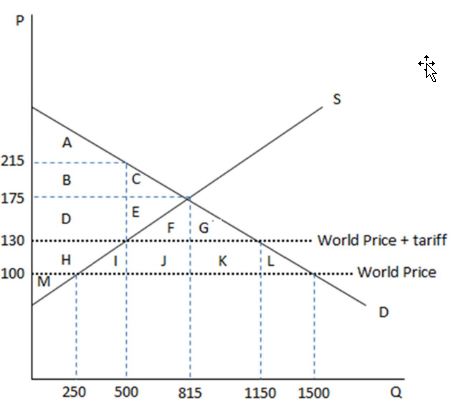According to behavioral economists, people's preferences toward a particular outcome:
A. depend heavily on the contextual information that defines whether that outcome is a gain
or a loss.
B. are context independent because the same state of being is created regardless of one's
previous circumstances.
C. differ across people but are fixed for any given individual.
D. depend primarily on genetics rather than environmental or contextual forces.
Answer: A
You might also like to view...
If policymakers implement an expansionary fiscal policy but do not take into account the potential for crowding out, the new equilibrium level of GDP is likely to
A) be at potential GDP. B) be below potential GDP. C) be above potential GDP. D) There is insufficient information given here to draw a conclusion.
If a monopoly charges higher prices to consumers who buy smaller quantities than to consumers who buy larger quantities, then
A) consumer surplus is larger than under single-price monopoly. B) social welfare is larger than under perfect competition. C) the monopoly's profits are larger than under single-price monopoly. D) the monopoly's profits are larger than under perfect price discrimination.
A cutback in the space program due to a slow economy causes an increase in unemployment among aeronautical engineers. This is an example of
A) cyclical unemployment. B) frictional unemployment. C) seasonal unemployment. D) structural unemployment.
According to the graph shown, if this economy were open to free trade, and decided to impose a tariff, the domestic quantity supplied would increase from:
This graph demonstrates the domestic demand and supply for a good, as well as a tariff and the world price for that good.

A. 815 to 1500.
B. 815 to 1150.
C. 250 to 500.
D. 250 to 815.